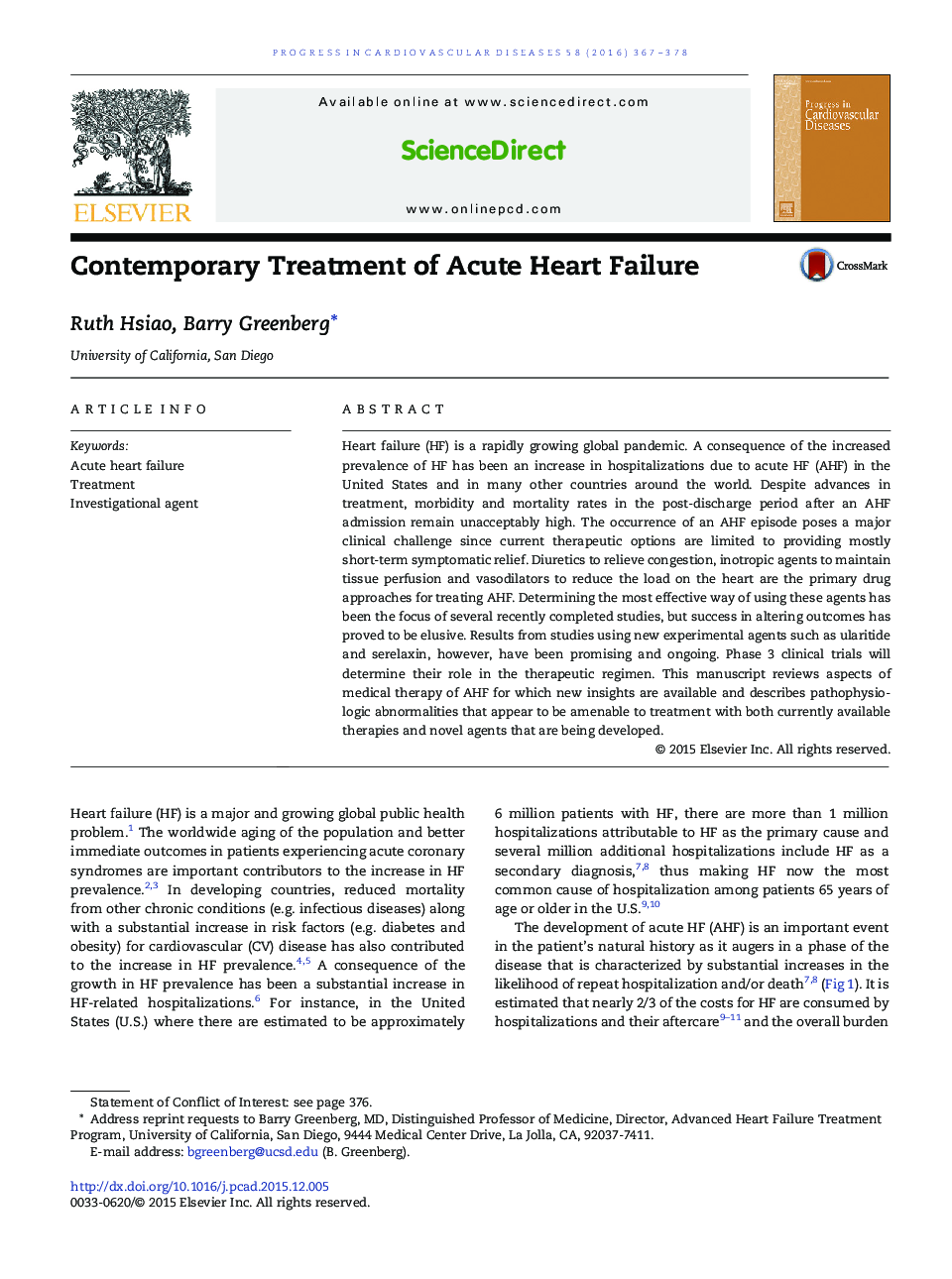| Article ID | Journal | Published Year | Pages | File Type |
|---|---|---|---|---|
| 3006188 | Progress in Cardiovascular Diseases | 2016 | 12 Pages |
Heart failure (HF) is a rapidly growing global pandemic. A consequence of the increased prevalence of HF has been an increase in hospitalizations due to acute HF (AHF) in the United States and in many other countries around the world. Despite advances in treatment, morbidity and mortality rates in the post-discharge period after an AHF admission remain unacceptably high. The occurrence of an AHF episode poses a major clinical challenge since current therapeutic options are limited to providing mostly short-term symptomatic relief. Diuretics to relieve congestion, inotropic agents to maintain tissue perfusion and vasodilators to reduce the load on the heart are the primary drug approaches for treating AHF. Determining the most effective way of using these agents has been the focus of several recently completed studies, but success in altering outcomes has proved to be elusive. Results from studies using new experimental agents such as ularitide and serelaxin, however, have been promising and ongoing. Phase 3 clinical trials will determine their role in the therapeutic regimen. This manuscript reviews aspects of medical therapy of AHF for which new insights are available and describes pathophysiologic abnormalities that appear to be amenable to treatment with both currently available therapies and novel agents that are being developed.
